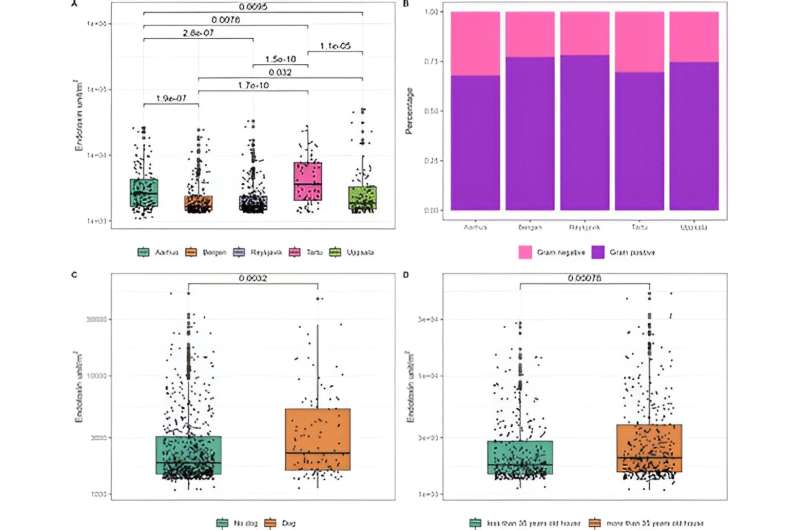This article has been reviewed according to Science X's editorial process and policies. Editors have highlighted the following attributes while ensuring the content's credibility:
fact-checked
peer-reviewed publication
trusted source
proofread
New research shows link between climate change and immune health

Climate change may be impacting our immune systems, a study from the University of Bergen, Norway, shows. This research brings into focus the intricate interplay between environmental factors, microbial communities and their potential impact on human health.
The findings offer insights that could shape our living spaces and our health for generations to come. The research is published in the journal Environmental Science & Technology.
In the study, conducted across five Nordic cities, researchers delved into the intricate world of indoor microbial communities, shedding light on their connection to human health. The investigation, encompassing 1,038 households, underscores the pivotal role of occupants and environmental determinants in shaping the airborne bacterial microbiome found in indoor dust.
"This pioneering work, poised to redefine our understanding of indoor environments, has unveiled correlations between geographical location, meteorological conditions, occupants' characteristics, pets, and cleaning practices, and the composition of indoor microbiota," says researcher at the faculty of Medicine, University of Bergen, Hesham Amin.
Climate change and risk of asthma and atopy development
Researchers observed that diverse microbial exposure has been inversely linked to the risk of asthma and atopy development. Building upon this knowledge, the study highlighted that protective "farm-like" microbiota, associated with lower asthma and atopy risk, exhibited a higher abundance of specific outdoor-associated bacterial taxa. Intriguingly, these same taxa were less prevalent in homes in Bergen, where higher precipitation and reduced wind speeds impede their entry indoors.
Considering the impending impact of climate change, the research team focused on a critical implication. As global warming is expected to intensify precipitation patterns, the wet deposition of outdoor particulates would increase and outdoor bacteria entry indoors could decrease.
Consequently, fewer outdoor bacteria might contribute to indoor microbiomes. This shift could have unintended consequences for immune health, potentially compromising the development and maintenance of a tolerogenic immune status.
"This groundbreaking research brings into focus the intricate interplay between environmental factors, microbial communities, and their potential impact on human health," Amin says.
"The findings serve as a clarion call for continued investigation into the delicate balance between our indoor surroundings and our well-being. As we navigate an ever-changing world, understanding the nuances of our indoor microbiome takes center stage, offering insights that could shape our living spaces and our health for generations to come."
More information: Hesham Amin et al, Indoor Airborne Microbiome and Endotoxin: Meteorological Events and Occupant Characteristics Are Important Determinants, Environmental Science & Technology (2023). DOI: 10.1021/acs.est.3c01616
Journal information: Environmental Science & Technology
Provided by University of Bergen





















